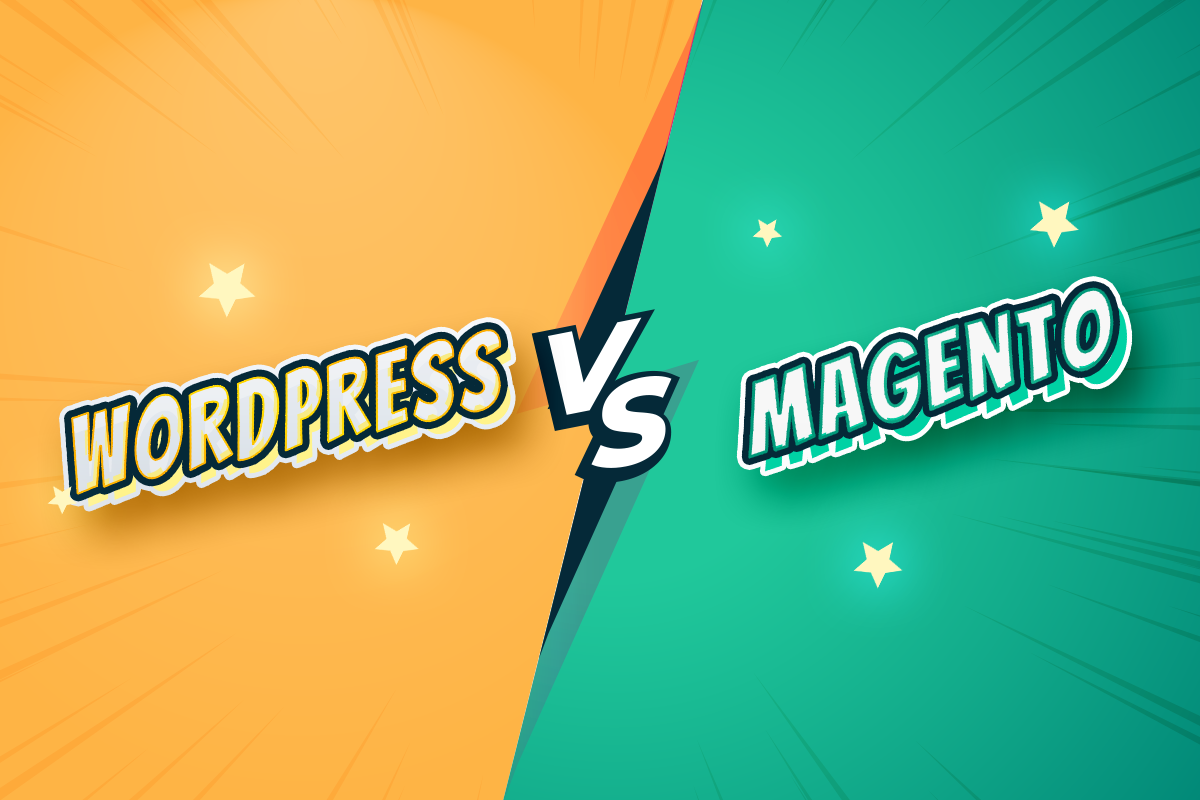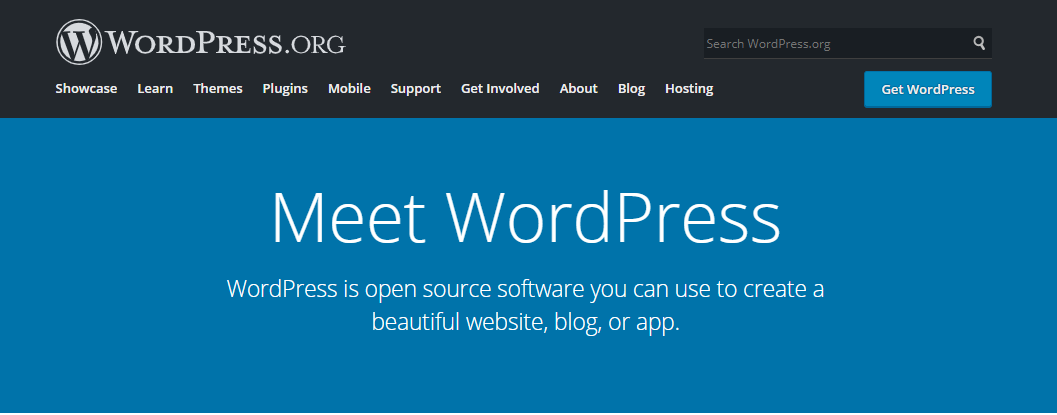WordPress vs Magento – Which is better for eCommerce in 2021?

When your business has an online presence, it automatically lends you more credibility. With the right eCommerce platform, you can increase the reach and sales of your store substantially. If you’re looking to take your business online in 2021, you might be confused between a few key players in the eCommerce industry. In this article, we will compare two such eCommerce store builders – WordPress vs Magento for eCommerce.

There are many differences between WordPress and Magento, but before we get to those, let’s talk about their core similarities. Both platforms are powerful and scalable open-source platforms. They both have a strong online support community and are quite capable of offering guidance if you get stuck. Moreover, they are technically available for free. Please note that although Magento offers paid versions like Magento Commerce and Magento Commerce Cloud, they are primarily designed for large organizations and tech giants.

In this article, we will be listing out the differences between WordPress and Magento Open Source, which is the free version fit for small and medium companies.
Let’s get started.
1. Software
As mentioned before, both Magento and WordPress are open-source platforms. This means that you need to set up your own hosting account and domain name, after which you download the software for free. So, how can you decide whether to pick Magento or WordPress for eCommerce?
The main difference between WordPress and Magento’s software architecture is that the former is primarily a blogging platform famous for its content management system (CMS). To avail of its eCommerce benefits, you need to download a special plugin called WooCommerce. This means that an extra step lies between you and your online store. However, the duality of this platform can be beneficial, if used to amplify the other element.
On the other hand, Magento is dedicated to building eCommerce stores. So, you can avail all its eCommerce features the minute you download Magento.
Verdict – WordPress vs Magento: Software
When looking at Magento vs WordPress for eCommerce in this category, we don’t see a clear winner. We recommend WordPress for businesses that could profit from a store built around content, and Magento for ones that want to focus solely on eCommerce.
2. Ease of use
In this section, we will show you which platform is easier to use – Magento or WordPress – for eCommerce.
WordPress, though in no means an uncomplicated platform, is more beginner-friendly than Magento. While it does have a learning curve, it can be used by both beginners and developers alike – as long as they are willing to invest the time and energy. On the other hand, Magento is quite complex, and you do need to know how to code to use it. So, unless you know to code, you will have to hire someone to do it for you.
Verdict – WordPress vs Magento: Ease of use
There is a clear difference between WordPress and Magento when it comes to their simplicity, and so, WordPress wins this round fair and square.
3. Design and customization
Having a great design theme that fits the personality of your online store is extremely important. For this specific purpose of eCommerce, Magento vs WordPress poses some minor differences.
While both platforms offer thousands of themes and templates, not all of these are free. While ready-made themes are mostly available for free, you will have to pay to customize most themes. The difference between WordPress and Magento in this category lies in the fact that it might cost you more time and money to customize a template in Magento. However, you may end up doing it in a more programmatic manner and hence benefit from it.
Verdict – WordPress vs Magento: Design and customization
Here, we have another tie in the debate around Magento vs WordPress for eCommerce. Both platforms offer a plethora of free and paid design and customization options, and it’s up to you to decide which one suits your store more.
4. E-commerce features and tools
Now, let’s analyze features specifically around eCommerce in Magento vs WordPress.
As a platform that is solely dedicated to eCommerce functionality, Magento has many powerful advantages to offer in this category. It comes with incredible built-in eCommerce tools such as free shipping, different price structures for retailers and wholesale buyers, single-page checkout, selling unlimited physical and digital products or company services, etc.
As mentioned before, you need to download a plugin called WooCommerce on WordPress to avail of its eCommerce features. Here, too, you can sell unlimited physical and digital products. Other highlights include a built-in inventory management system, a flexible product segmentation feature, extensive analytical tools, geolocation tools, etc. They are quite straightforward to operate, unlike Magento’s which often require expert knowledge.
However, the list of features offered, though large, is not quite as extensive as Magento’s.
Verdict – WordPress vs Magento: E-commerce features and tools
Strictly speaking, Magento wins this round. However, if you don’t need an exhaustive list of eCommerce tools to operate your store and prefer tools that are easy and straightforward, you can go for WordPress.
5. SEO tools
Moving on, it’s time to explore the differences between WordPress and Magento in terms of SEO.
Magento offers a vast collection of SEO tools that will give your store amazing organic visibility. Not only can you edit permalinks, metatags, H1s, and URLs, you also get access to super SEO optimization, independent navigation links, independent page titles, integrated content pages, and faster load times. There are many paid SEO extensions that offer you even more visibility.
WordPress requires you to download a plugin such as Yoast, which allows you to customize your sitemap index and most aspects of your posts and products. The free version, however, has limited offerings compared to Magento. The paid version is $89.
Verdict – WordPress vs Magento: SEO tools
When it comes to WordPress vs Magento for SEO, we suggest choosing Magento, because it offers a larger number of features and customization options.
6. Pricing
The last segment in this comparison of WordPress vs Magento for eCommerce is arguably the most important – costs and pricing.
While both WordPress and Magento are free software, there are other costs that you need to consider before you pick a platform. For both platforms, you need to purchase a hosting account and domain name from websites such as Bluehost. Widgets, apps, themes, etc. all add up to quite a bit on both platforms, though it is likely to be more expensive on a more technical platform like Magento. Apart from these costs, because of its complexity, you may have to hire developers to do the work you may be able to do on WordPress yourself for free.
Verdict – WordPress vs Magento: Pricing
At least a small investment is required for both platforms. Even so, there are some differences between the pricing of WordPress and Magento, and the former comes out to be cheaper.
Which is better for eCommerce – Magento vs WordPress
Still not a hundred percent sure which platform is right for you? We have listed out the differences between WordPress and Magento in the table below to help you compartmentalize.
|
WordPress |
Magento |
| Open-source platform for blogging, plugin needed for eCommerce. | Open-source platform dedicated to eCommerce. |
| Suitable for beginners as well as developers. | Not beginner-friendly. |
| Huge variety of free and paid customizable themes. | Incredible design capacity with free and paid customizable themes. |
| Downloadable plugin available for most of your eCommerce needs. | Exhaustive list of built-in eCommerce tools and features. |
| Downloadable plugin available with customizable features. | Large number of SEO-friendly features available. |
| Free software, but with additional costs. | Free software, paid additional features, and the added cost of hiring developers. |
As our comparison showcases, there’s no one right answer to which platform is better between WordPress and Magento. You must choose the one which suits your needs more, keeping in mind the size of your business, your budget, the time and energy you’re willing to invest in your online store, etc.
This article would be incomplete without mentioning that there’s a growing trend around combining Magento and WordPress to maximize the benefits for your store. How? You can link your Magento store to your WordPress blog, where you can derive organic traffic from additional customers.
Starting a new business?
Get thousands of catchy and creative name ideas for your business + a Free Logo Now!

